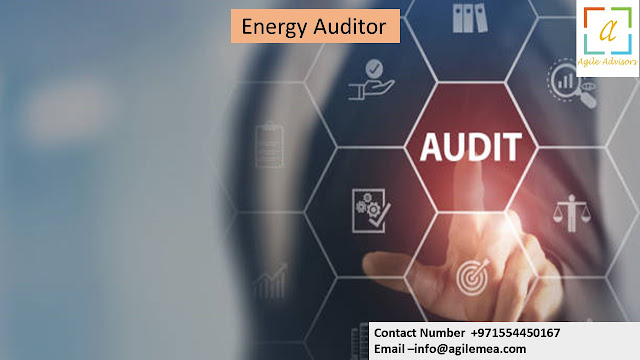Considerations for Energy Audit Use
Agile Advisors as an Energy Audit, the first stage
in conducting an energy audit is setting measurable, attainable, and realistic
goals. These objectives should clarify the audit's purpose and be customized to
your building's or facility's particular requirements. Recognizing Your Energy
Use: One of the first steps in identifying areas for improvement and lowering
energy waste is to become aware of how you’re building or organization uses
energy. It is important to know how much energy you’re building or facility
uses, what systems and equipment it employs, and how much energy it uses during
peak hours. Possibilities for Energy Efficiency: An energy audit should point
out areas where you’re building or establishment may operate more efficiently.
This could entail changing out inefficient machinery or systems, putting
energy-saving procedures and technologies into place, or adding more efficient
parts to already-existing systems.
To help you as Energy Consultant, an energy audit should include a cost analysis of any suggested energy efficiency opportunities. This covers the price of the new machinery and installation and any potential savings from implementing these upgrades. Your energy assessment should include a list of contacts and resources to assist you in implementing any suggested efficiency changes. Local utility companies, qualified energy auditors, and helpful government organizations are a few examples. It’s critical to monitor and assess the outcomes of any efficiency improvements to ensure they are accomplishing the objectives set out. This could entail monitoring cost reductions or energy use over time and conducting follow-up audits to assess the success of any modifications. These are only a few things to think about, but they are crucial actions to ensure your energy audit is thorough, efficient, and successful. As one of the leading Energy Audit in Agile Advisors
As one of the leading Energy Audit in Agile Advisors,
you can contribute to reducing energy waste and saving money by taking the time
to carefully plan for and implement adjustments based on the findings of your
energy audit. Determining how much energy your building uses precisely is a
crucial component of an energy audit. This can be accomplished through
gathering information about fuel and water consumption, energy bills, and
readings from meters and other energy-monitoring devices. After gathering
information about your building's energy usage, you may start determining
high-energy consumption locations. This will assist you in determining which
areas require modification to increase productivity. Invest in energy-efficient
appliances: One of the best ways to lower the energy consumption of your
building is to install energy-efficient appliances. Look for appliances that
have earned the Energy Star certification to ensure the best efficiency. It is
critical to provide energy efficiency training to your employees.
We believe as an Energy Auditor provide in
Agile Advisors, encouraging people to use appliances correctly and emphasizing
the value of energy efficiency will help ensure that your building is being
used as efficiently as possible. Monitoring your building's energy usage is
essential to keeping it operating as efficiently as possible. Energy meters
should be installed and performance monitored to track how much energy is
consumed and where adjustments should be made. Utilize the incentives offered:
Businesses that invest in energy efficiency might receive incentives from
several local and state governments. Utilizing these may lower your building's
energy consumption and save money. One excellent method to lower your
building's energy consumption is to purchase green technologies, such as solar
panels or geothermal heating and cooling systems. These technologies have the
potential to lessen your environmental impact and save you money over time.
In our role as Energy Consultant, by paying
attention to these pointers, you can ensure that your building is as
energy-efficient as possible. By conducting an energy audit and making any
required adjustments, you can lower your facility's environmental impact and
save money. Energy audits assist both individuals and companies in reducing
their environmental effects, saving money, and conserving energy. Understanding
your baseline usage through an energy audit is always the first step. You can
then use that information to decide where to spend money on energy-saving
upgrades. The important thing is to start moving in the direction of a more
sustainable future. Putting these changes into practice can be as easy or
complicated as you choose. A detailed energy audit is a comprehensive analysis
of the energy consumption and expenses related to a complete establishment or
primary structure.




Comments
Post a Comment